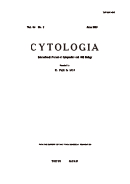
CYTOLOGIA
Scope & Guideline
Charting New Frontiers in Cytological Research
Introduction
Aims and Scopes
- Cytogenetics and Karyotype Analysis:
The journal frequently publishes studies on the karyotype and chromosomal characteristics of various plant species, providing insights into their genetic diversity and evolutionary relationships. - Plant Regeneration and Development:
Research on plant regeneration, including somatic embryogenesis and shoot regeneration from different explants, is a key area, highlighting methodologies for improving plant propagation and genetic studies. - Environmental and Stress Responses:
Papers often address how different environmental stresses and treatments (like irradiation) affect cytological processes, contributing to the understanding of plant resilience and adaptation. - Molecular and Cellular Mechanisms:
The journal includes studies on the molecular mechanisms underlying cytological phenomena, such as gene expression, DNA repair, and chromosomal behavior during cell division. - Biodiversity and Conservation:
A focus on the cytological and genetic characterization of endemic and rare species emphasizes the importance of biodiversity conservation efforts.
Trending and Emerging
- Genome Editing and Molecular Techniques:
There is a growing focus on genome editing technologies, including CRISPR and other molecular techniques, reflecting the modern landscape of genetic studies in plants. - Impact of Environmental Stressors:
Increased research on how various environmental stressors (such as radiation, heavy metals, and climate factors) affect plant cytology and genetics highlights the need for understanding plant resilience in changing environments. - Comparative Cytogenetics:
The journal is seeing a rise in comparative cytogenetic studies that analyze multiple species or populations, which enhances understanding of evolutionary biology and genetic diversity. - Application of Advanced Imaging Techniques:
Emerging themes include the use of advanced imaging techniques to study cellular processes, such as live-cell imaging and fluorescence microscopy, which allow for real-time analysis of cytological phenomena. - Interdisciplinary Approaches:
The integration of cytology with other fields, such as ecology, environmental science, and molecular biology, demonstrates a trend towards interdisciplinary research that addresses broader biological questions.
Declining or Waning
- Traditional Cytological Techniques:
There has been a noticeable decline in studies focusing solely on classical cytological techniques without integration of modern molecular approaches, as the field moves towards more comprehensive genomic analyses. - General Plant Morphology:
Research on general plant morphology, which used to be a staple, is now less prominent as the emphasis shifts towards molecular and genetic analyses that provide deeper insights into plant development. - Single-Species Studies:
The trend is moving away from studies that focus on single species without comparative analyses or broader ecological implications, as researchers increasingly recognize the importance of ecological context in cytological research.
Similar Journals

Propagation of Ornamental Plants
Bridging Aesthetics and Science in HorticulturePropagation of Ornamental Plants is a distinguished journal published by SEJANI PUBL that focuses on the field of ornamental horticulture, an area critical to both commercial and aesthetic applications in the environment. With an ISSN of 1311-9109, this journal serves as a platform for scholarly articles and research spanning from 2005 to 2021, and resuming in 2023. While its current Category Quartiles place it within the Q4 rankings for Forestry and Plant Science, this journal remains committed to providing valuable insights and research findings related to plant propagation techniques, environmental sustainability, and ornamental plant breeding. Despite being an underrepresented publication within its field, its efforts contribute to the body of knowledge necessary for advancing both academic research and practical applications. For researchers, professionals, and students alike, Propagation of Ornamental Plants stands as an essential resource for advancing the field and fostering innovation in ornamental horticulture.

Plant Science Today
Advancing plant knowledge for a sustainable tomorrow.Plant Science Today is a prominent journal dedicated to advancing the field of plant sciences through innovative research and comprehensive reviews. Published by HORIZON E-PUBLISHING GROUP in India, this open-access journal has been actively disseminating knowledge since its inception in 2018, with a convergence period extending to 2024. With an ISSN of 2348-1900 and a growing reputation, it is categorized in various quartiles for 2023, notably achieving Q3 in Biochemistry, Genetics and Molecular Biology (miscellaneous), while it holds Q4 rankings in critical fields including Ecology and Plant Science. As a valuable resource for students, researchers, and professionals, Plant Science Today aims to inspire discussion and innovation in the realm of ecological and plant science disciplines, where it currently ranks within the lower percentiles in prominent categories such as Environmental Science and Agricultural and Biological Sciences. The journal serves as a crucial platform for the exploration of experimental and theoretical advances, fostering a community eager to explore plant biology's complexities.
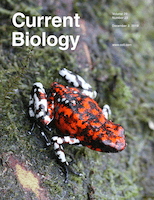
CURRENT BIOLOGY
Illuminating Pathways in Agricultural and Biological ResearchCURRENT BIOLOGY is a premier academic journal published by CELL PRESS, dedicated to a broad spectrum of fields within biological sciences. With an ISSN of 0960-9822 and E-ISSN 1879-0445, the journal has established itself as a vital resource for groundbreaking research and advancements since its inception in 1991. CURRENT BIOLOGY boasts high prominence in its categories, securing a Q1 quartile ranking in Agricultural and Biological Sciences, Biochemistry, Genetics and Molecular Biology, and Neuroscience, indicating its significant impact and relevance in these fields. Notably, it ranks #9 out of 221 journals in Agricultural and Biological Sciences, placing it in the 96th percentile, while also maintaining a strong presence in the Biochemistry category with a rank of #26. Researchers and professionals can rely on CURRENT BIOLOGY for comprehensive reviews, innovative methodologies, and crucial scientific developments that bridge theoretical knowledge with practical applications. The journal continues to play an essential role in enhancing the global dialogue in biological research, making it indispensable for students, academics, and industry experts aiming to stay at the forefront of the rapidly evolving landscape of life sciences.
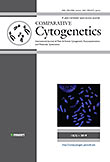
Comparative Cytogenetics
Advancing Knowledge in Cytogenetics and BeyondComparative Cytogenetics, an esteemed journal published by PENSOFT PUBLISHERS, is a pivotal resource in the fields of animal science, biotechnology, genetics, insect science, and plant science. Since its inception as an Open Access journal in 2009, it has significantly contributed to the democratization of scientific knowledge, allowing researchers and students across the globe to access cutting-edge developments in cytogenetics. With an impressive range of articles published from 2010 to 2024, this journal has achieved a commendable impact within the academic community, earning a Q3 ranking in Animal Science and Zoology, Biotechnology, and Insect Science, as well as a Q4 ranking in Genetics, indicating its growing influence. Its Scopus rankings reflect a solid standing, with notable percentiles showcasing its relevance across diverse biological sciences. Located in Sofia, Bulgaria, Comparative Cytogenetics serves not only to disseminate research but also to foster collaboration in understanding cytogenetic dynamics, making it an essential platform for professionals, researchers, and students alike.
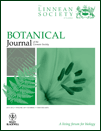
BOTANICAL JOURNAL OF THE LINNEAN SOCIETY
Unveiling the Complexity of Flora and Fauna InteractionsThe Botanical Journal of the Linnean Society, published by Oxford University Press, stands as a premier platform for interdisciplinary research within the realms of Ecology, Evolution, Behavior, and Plant Science. With a notable impact factor reflective of its esteemed reputation, this journal is classified in the Q1 quartile for both Ecology and Plant Science, placing it among the most influential publications in these fields. Since its inception in 1969, and with an anticipated convergence of research extending to 2024, it has become essential for scholars and professionals seeking to engage with cutting-edge studies, theoretical frameworks, and practical applications that drive our understanding of plant biology and ecological systems. The journal’s commitment to excellence is underscored by its robust Scopus rankings—achieving an impressive 83rd percentile in Ecology and a 82nd percentile in Plant Science. This makes the Botanical Journal of the Linnean Society a crucial resource for researchers, educators, and students alike, eager to advance their knowledge and contribute to the evolving discourse in botany and environmental studies.

PROTOPLASMA
Transforming Research into Knowledge for Future GenerationsPROTOPLASMA is a prestigious academic journal published by Springer Wien, dedicated to advancing knowledge in the fields of Cell Biology, Plant Science, and related areas of Medicine. Established in 1926 and continuing through 2024, this journal boasts a rich history of scholarly contributions and is currently indexed with a notable ranking in various disciplines: it stands in the top quartile (Q1) in Plant Science, the second quartile (Q2) in miscellaneous Medicine, and the third quartile (Q3) in Cell Biology as of 2023. With robust Scopus rankings placing it in the 86th percentile in Plant Science and a solid position in Cell Biology, PROTOPLASMA is recognized for its commitment to high-quality research and innovative findings. Although the journal does not offer open access options, it remains a valuable resource for researchers, professionals, and students seeking to explore the cellular and molecular underpinnings of plant life and its implications in broader biological contexts. Based in Austria, PROTOPLASMA serves as a vital forum for disseminating pioneering research that shapes the future of scientific inquiry in its respective fields.

PHYSIOLOGY AND MOLECULAR BIOLOGY OF PLANTS
Bridging Research and Application in Plant SciencePHYSIOLOGY AND MOLECULAR BIOLOGY OF PLANTS, published by SPRINGER, is a vital journal focused on the advancing field of plant science. Featuring research that spans physiology, molecular biology, and their applications in agriculture, this journal is pivotal for academics, professionals, and students keen on understanding plant processes and enhancing crop production. With an ISSN of 0971-5894 and an E-ISSN of 0974-0430, this journal is recognized for its scholarly significance, ranking in the Q3 category in Molecular Biology, Q2 in Physiology, and Q1 in Plant Science as of 2023. The journal maintains a strong position in the Scopus rankings, with notable percentile rankings including 87th in Plant Science. Established in 2000, this publication aims to foster the dissemination of cutting-edge research by providing a platform for open discussion and knowledge sharing about plant physiology and molecular mechanisms. While it does not currently offer open access options, its comprehensive studies and reviews serve as an essential resource for enhancing our understanding of plant biology.

Biology-Basel
Fostering Collaboration in Cutting-edge Biological DiscoveriesBiology-Basel is a premier, peer-reviewed open-access journal published by MDPI since 2012, situated in the heart of Switzerland. With an E-ISSN of 2079-7737, this journal serves as a vital platform for the dissemination of innovative research across the broad spectrum of Agricultural and Biological Sciences, Biochemistry, Genetics, Molecular Biology, and Immunology. Recognized for its rigorous editorial standards and impactful findings, it currently ranks Q1 in Agricultural and Biological Sciences and holds impressive positions in several categories according to the 2023 Scopus rankings. The journal’s open-access model ensures that high-quality research is freely available to a global audience, fostering collaboration and knowledge sharing among researchers, professionals, and students alike. Spanning from 2012 to 2024, Biology-Basel is committed to reflecting the latest advancements in biological sciences, making it an essential resource in the ever-evolving landscape of biological research.

Current Plant Biology
Connecting Researchers in Plant SciencesCurrent Plant Biology is a distinguished peer-reviewed journal published by ELSEVIER, focusing on the dynamic and rapidly evolving field of plant sciences. Since its inception as an Open Access publication in 2014, it has established itself as a leading platform for innovative research, boasting a remarkable Impact Factor that underscores its relevance and contribution to the scientific community. Based in the Netherlands, this journal caters to a diverse audience of researchers, professionals, and students, facilitating the dissemination of key findings in an array of disciplines including biochemistry, genetics, cell biology, and developmental biology. Recognized for its rigorous standards, Current Plant Biology holds a prestigious standing, classified within the Q1 and Q2 quartiles of various Scopus categories, reflecting its impact and reputation in the realms of Plant Science and related fields. The journal is committed to providing accessible and high-quality research outputs that inspire further investigation and collaboration in plant biology.
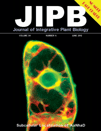
Journal of Integrative Plant Biology
Fostering Interdisciplinary Growth in Plant ResearchThe Journal of Integrative Plant Biology, published by WILEY, is a premier academic journal that has been at the forefront of advancing research in plant biology since its inception in 2005. With a notable impact factor and a robust Scopus ranking—positioned at #7 out of 516 in Plant Science and #18 out of 438 in Biochemistry—this journal is recognized as a Q1 journal in multiple categories, including Biochemistry and Plant Science. The journal aims to bridge the gaps between various disciplines in plant research, emphasizing integrative and interdisciplinary approaches to understanding plant biology. With options for open access, the Journal of Integrative Plant Biology ensures broad visibility and impact of research findings, making it an invaluable resource for researchers, professionals, and students looking to stay informed on innovative advancements in the field. Its headquarters are located in the United Kingdom, further amplifying its reach within the global academic community.